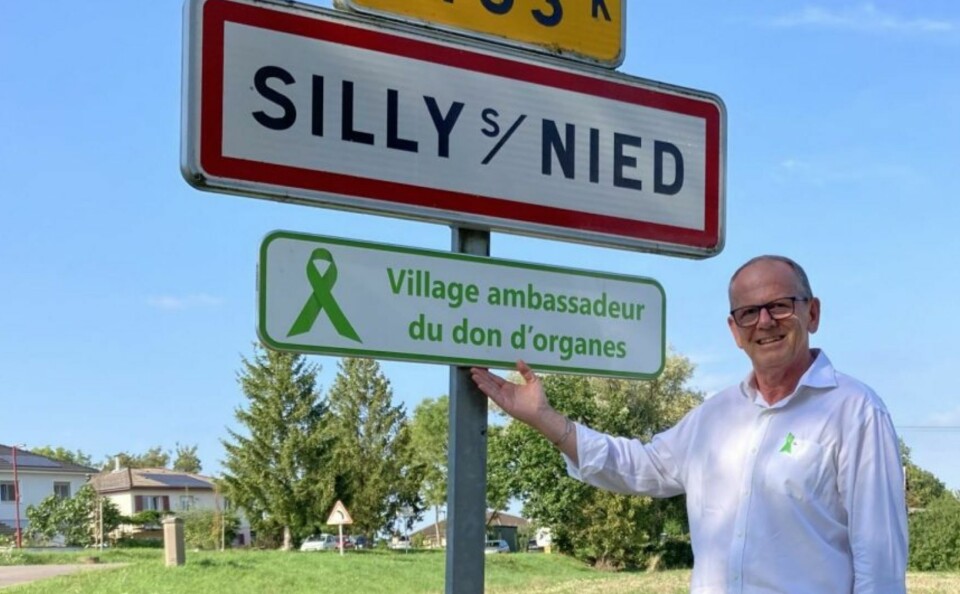-
‘Medical deserts’ major issue in upcoming local elections in France
Access to healthcare is now a more pressing concern than education, mayors say
-
How to save money on seeing a specialist doctor in France
Some specialists charge more than others for the same service
-
Thermal cure funding confirmed in France for 2026
Cure thermale is a prescribed medical treatment using fresh spring water in an approved centre
How French village mayor is breaking organ donation taboo
The village sign has sparked debate in the street and got people talking about their own organ donation wishes

A commune in east France has become the latest in the country to be designated an ‘organ donation ambassador village’.
Mayor Serge Wolljung, of Silly-sur-Nied in Moselle, unveiled a sign showing the label next to the village name this summer.
It followed an agreement with the Association France Rein Lorraine to join a network of some 135 towns and villages that have already signed up to the scheme.
For Mr Wolljung, it has personal resonance.
“Someone close to me had a kidney transplant that was rejected. They are now on dialysis and waiting for a new organ,” he told The Connexion.
Read more: Organ donation in France: Why it is good to talk about it
France has an ‘opt-out’ system but families can refuse
France has an ‘opt-out’ system for organ donation, meaning every adult is presumed to be a donor unless they have specifically registered not to at registrenationaldesrefus.fr.
In practice, however, doctors consult with relatives of the potential donor before performing the procedure, and are often met with a refusal.
“As far as I was concerned, everyone was an organ donor, so I thought it was a matter of course,” said Mr Wolljung.
“But nearly 33% of people refuse organ donation. Doctors ask families but they say no because they haven’t discussed it beforehand.”
Read more: Can I donate my body to science once I die in France?
‘A person who dies save eight lives’
The sign aims to spark discussion about organ donation and raise awareness about making sure people understand their loved ones’ wishes.
“A lot of people didn’t ask the question and now in the street, we’re all talking about it. It’s sparked debate, that’s what we want,” he said.
“I think there’s a taboo. It’s a subject that’s not so easy to talk about. What touches people most is when we tell them that a person who dies can donate eight organs and save eight people.”
Although Silly-sur-Nied is a small community of around 700 people, Mr Wolljung hopes the initiative will inspire others to follow its lead.
“It’s a drop in the bucket,” he admitted, “but we’d like all the communes to do the same thing.
“Our humble ambition is to get more people talking about organ donation, so that if they do have any concerns, we’ll be able to help.”
In 2022, 5,494 transplants were carried out in France, including 533 from living donors.
As of January 1 this year, some 10,810 patients were on the active waiting list for a transplant, ie. immediately eligible for one.
Related articles
Transplant patient fighting for France to pay €1m US hospital bill
Death of a family member in France: Steps to take in days after
French firm pioneers stem cell treatment for heart attack victims
























